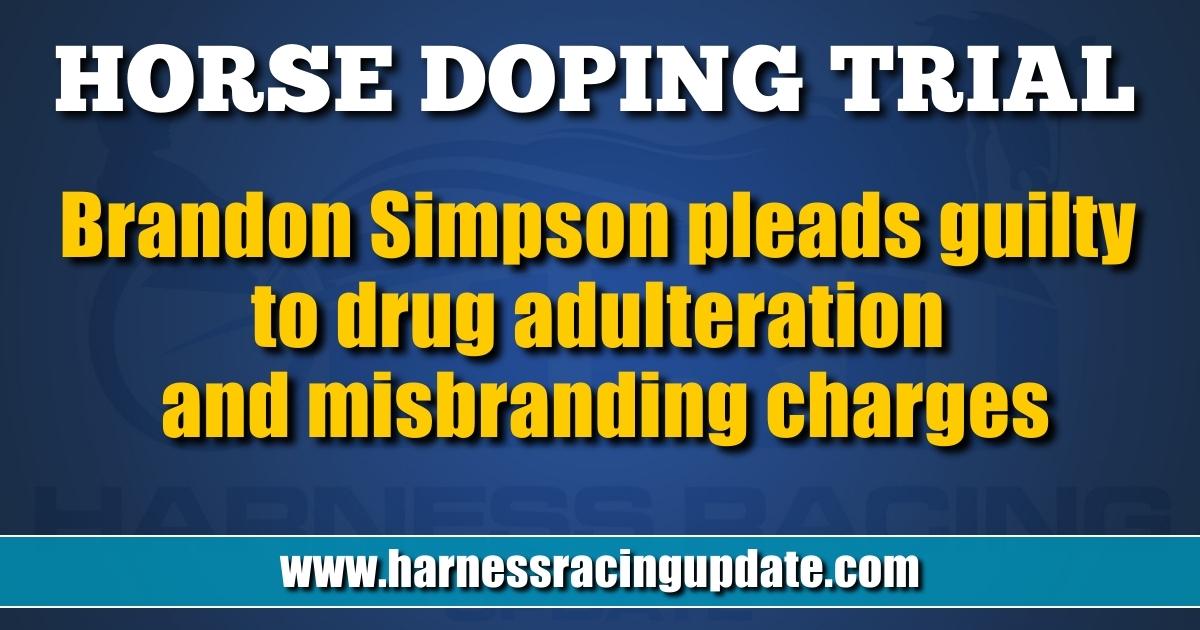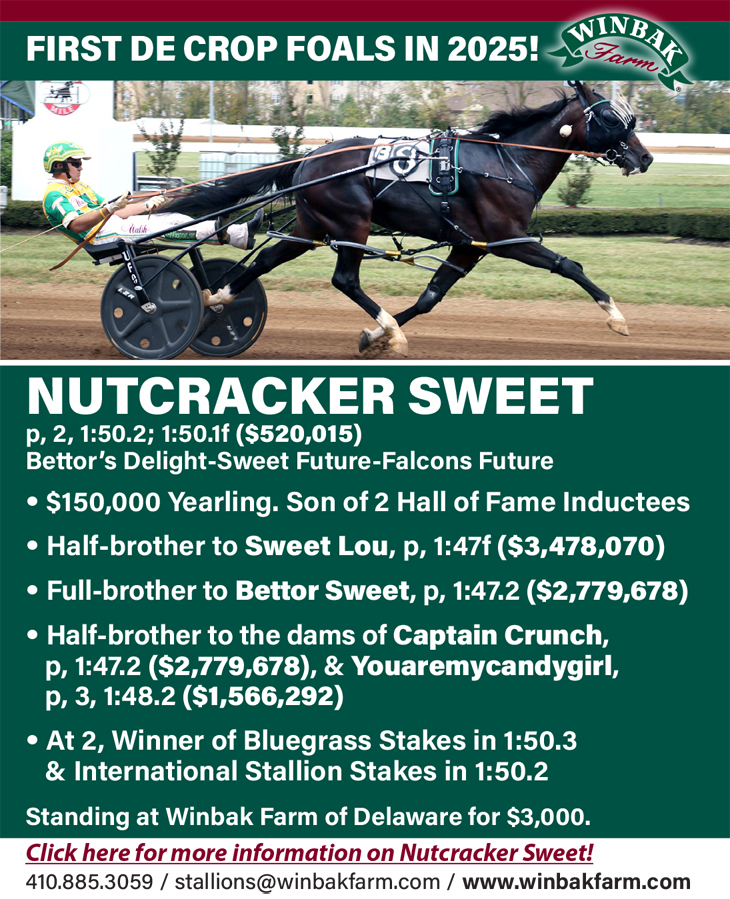Brandon Simpson pleads guilty to drug adulteration and misbranding charges
The former Rene Allard assistant was among those previously indicted by the government. It’s unclear whether a new round of names is about to surface in the horse doping case.
by Bill Finley
Just as it had started to appear that the doping cases that involved more than two dozen individuals from the standardbred and thoroughbred industries were grinding to a halt, a new name surfaced Thursday, more than three years after the original indictments were released.
Former trainer and driver Brandon Simpson, who served as an assistant trainer to Rene Allard, has pled guilty to one count of drug adulteration and misbranding conspiracy for his role in a scheme to provide horses with performance-enhancing drugs.
Simpson’s guilty plea raised as many questions as it answered. It was not clear why his name was not included in the original indictments that were released in March, 2020 and why, at such a later date, the government decided to press its case against Simpson. His indictment and guilty plea also raises the questions as to whether or not he will be the first of several names that are about to surface in what could be a new round of indictments and guilty pleas.
Simpson had been on the government’s radar since at least mid-November 2020 when his lawyers and the government agreed on a bail package for Simpson, which included a $50,000 bond and assurances that he would have no contact with racehorses without supervision of the owner of the premises where the horses were located. From there, the case seemingly disappeared until resurfacing this week.
Simpson, 42, both trained and drove, winning 1,643 races as a driver and 375 as a trainer. He last drove in 2017 and it appears that around that time he accepted a job as an assistant to Allard. Allard is among the bigger names caught up in the scandal and is currently serving a 27-month prison sentence after he previously plead guilty to one felony count of misbranding and altering drugs.
U.S. prosecutors said that Allard was one of a number of harness trainers who purchased illegal substances from Louis Grasso, a veterinarian, and administered the substances to their horses. Grasso was sentenced to 50 months in prison and two years of supervised release.
In a particularly troubling chapter in the Allard scandal, the Federal Bureau of Investigation intercepted a phone conversation in which two other alleged conspirators discussed the deaths of horses trained by Allard after they had been given illegal drugs. One reference caught on wiretap described the trainer’s operation as the “Allard death camp.”
Court documents released this week detailed Simpson’s activities, which included purchasing drugs at a pharmacy in South Carolina and then shipping them to a training center located in the Southern District of New York. Simpson also, the government claims, “administered prescription drugs to racehorses under Simpson’s and others’ control without a valid veterinary prescription, for the purposes of enhancing the horses’ race performance.”
In 2010, Simpson was named the recipient of the Rising Star Award from the U.S. Harness Writers’ Association Monticello-Goshen Chapter.
















